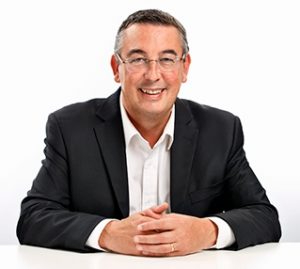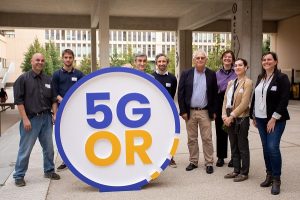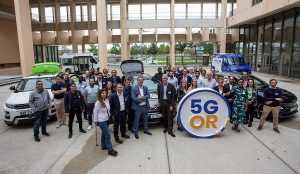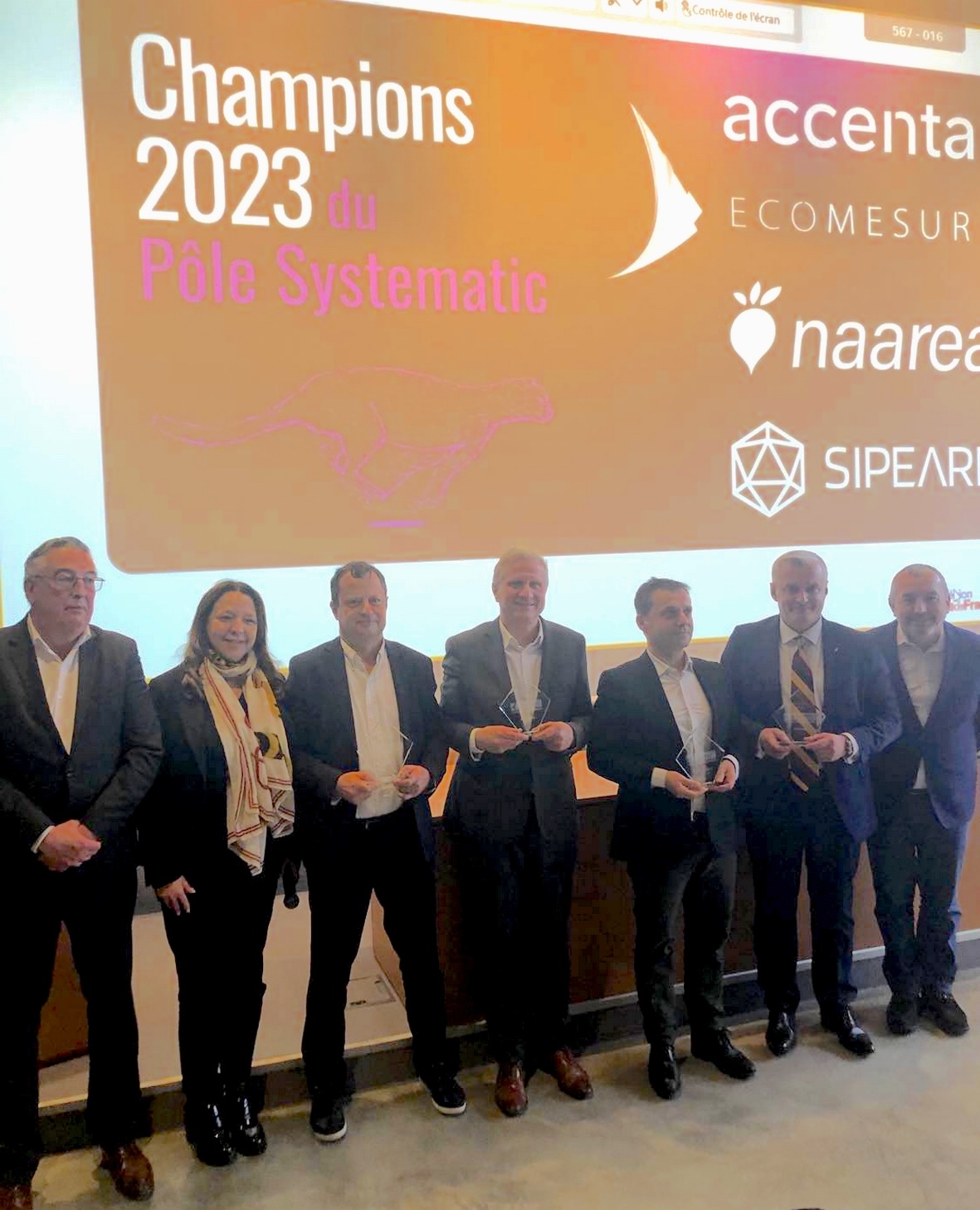[ad_1]
Created in 2005, the Systematic Paris-Region competitiveness cluster is today positioned as a European deep tech hub. With nearly a thousand members – large groups, SMEs, or startups, but also public research players – the Paris region federates and manages a very large and diverse ecosystem of players, around collaborative R&D projects focused on key technologies for the future.
Organized into seven “hubs”, the Cluster Systematic Paris-Region covers a wide range of technologies: digital infrastructure, cybersecurity, photonics, open source, or even drones, advanced engineering and IT. To successfully carry out the innovation projects it supports in these areas, the Systematic division has defined a strategy centered around two “strong and complementary” themes, as it defines them: structuring innovation, but also digital transformation. The division thus has more than 200 experts gathered within its Steering Committees, and has led, since its creation, no less than 796 projects to the financing stage, for a total amount of 3.6 billion euros… Again labeled last March by the State following the call for applications relating to phase V of the Competitiveness Clusters policy (2023-2026), Systematic now aims to increase the innovation capacities and growth of the Ile-de-France Deep Tech ecosystem that he runs, as explained to us Jean-Luc Beylat. Currently at the head of Nokia Bell Labs France, he has also chaired the Systematic division since 2011.
Engineering Techniques: What is the genesis of the Systematic Paris-Region competitiveness cluster?

Jean-Luc Beylat: Systematic was born from the first wave of calls for applications from the national competitiveness cluster policy: it has existed since the first phase, in 2005. It was structured around an ecosystem made up, initially, essentially of large groups: Thales, Dassault Aviation, Renault, Alcatel-Lucent, etc. These players based in Île-de-France have come together on themes such as digital simulation, defense and security technologies, and even telecommunications.
The Competitiveness Cluster thus began with around a hundred members. However, it very quickly gained momentum in technological areas, both software and hardware, remaining, therefore, a fairly general pole, where others, such as NextMovehave developed as industry hubs.
For my part, I took over as president of Systematic in 2011. The division then had around 200 members, compared to almost a thousand today. We then undertook to transform it to make it the European hub of Deep Techby restructuring it around aspects that are predominant today, such as data, AI, open source, cyber technologies, digital infrastructures, photonics… We had this desire to particularly highlight technologies, in order to bring together the different players in these fields.
What is the current typology of Systematic members, and their distribution?
Systematic today has many large groups, around 140. Our competitiveness cluster also brings together nearly 600 SMEs, ETIs and innovative startups. Young people are growing who work for example in the field of quantum computing, like When, Pasqal, Alice & BobCraft AI… More broadly, almost all the Deep Tech startups that have emerged in Île-de-France are members of Systematic.
In addition to these private economic players, there are also 160 public research laboratories. It is one of the strengths of the Competitiveness Clusters to bring together this diversity of actors, both public and private. The overall mission of a center such as ours consists of leading a very diverse ecosystem to generate partnership research. This is to enable these players to grow, in the case of SMEs and startups, or, for large groups, to help them transform.
What are the main issues facing the different categories of actors you mentioned?
For large groups, the main issue currently lies in what is called scouting de l’innovation, that is to say seeking out innovative technologies that they do not have internally. They certainly benefit from significant R&D centers, but given the diversity of technologies that we know today, these large groups need to find partners to support their innovation dynamic.
SMEs, for their part, are faced with the need to consolidate their technological know-how, but also with the need to increase their turnover with new innovative products.
Startups need the support of an ecosystem capable of supporting their rapid growth. They are not necessarily immediately concerned about their turnover, and therefore initially focus on access to skills, public laboratories, etc.
Finally, these universities and public laboratories are often looking for industrial partners, with a view to promoting their technologies and implementing their technology transfer strategies.
Each of these actors thus faces various problems and therefore adopts a significantly different approach. The possibility they have of meeting together, within the same center, means that ultimately, it all works together.
What concrete roles do you play, as a competitiveness cluster, to support your members in facing these challenges?
As I mentioned, our primary role is that of animating an ecosystem. To do this, on a given technology, we bring the partners together so that they define a common roadmap, collective trajectories on which to project themselves.
This results in the establishment of collaborative R&D projects, between large groups, SMEs, laboratories, etc. This also allows them to share knowledge on technological issues: we organize a large number of meetings, webinars, events during which our members come together to interact.

We also help our members find their way to the various financing centers. For this we work with State services, with the General Secretariat for Investment, with Bpifrance… We also work closely with the regions: the Île-de-France Region is particularly very involved in the life of Systematic. It itself defines a certain number of technologies that it wishes to see developed in its territory. This is the case, for example, of AI or quantum, pillars of our center.
A few years ago, you organized the Systematic division into seven “hubs”. For what ?
As you have understood, Systematic is a large structure which brings together a lot of people… We therefore had to recreate smaller structures, for more agility, but also to give more visibility to the different technologies around which the each of these hubs : digital infrastructure, cybersecurity, photonics, open source, drones, as well as advanced engineering & computing.
To avoid all of this being solely technology driven – focused on technologies – we have also defined three transversal issues linked to the major transformations of our society: health, territories, as well as industry & services. Associated with the technologies that I cited, these major issues make it possible to define a sort of “matrix approach” to the transformation of our society.
All this happened about five years ago, at a time when we needed to redefine our strategy to phase IV of labeling of competitiveness clusters and where we decided to make Systematic a European Deep Tech hub. Rather than forming sector groups, we decided to form technological groups, by creating these seven hubs.

On occasion of the launch of phase V in January 2023, we have also strengthened this approach around technologies, to which we are giving even more visibility. We have focused our efforts on themes that are experiencing real acceleration: AI, quantum, 5G… We are also, on this last point, operators of a major project called 5G Open Road. Its objective is to link the challenges of mobility with those of infrastructure, by supporting the development of the car – if not autonomous – in any case connected, capable for example of anticipating traffic disruptions. This project brings together around forty partners. It is, in a way, a laboratory for developing new concepts for the mobility of tomorrow. We are doing the same on other aspects that I mentioned, such as AI or quantum computing. Île-de-France is indeed very rich in innovation players: it is the leading R&D center in Europe. So we’re trying to support this environment to accelerate the development of these key technologies for our future. This is what guides our roadmap for 2027as part of this phase V labeling.
What exactly does this labeling represent, is it simply a purely formal recognition…?
No, this translates into a very concrete way! First of all, the center would simply not exist without this state label. In addition to the label itself, the State provides us, via the regions, with funding which accounts for around 20% of our budget, to which is added 25% aid from the region itself. This labeling also has the virtue of setting in motion the dynamics of the ecosystem, in connection with the region, businesses, universities. It is this dynamic which is ultimately the driving force behind Systematic’s overall approach, and which allows us to achieve many great successes each year, as we again observed in mid-December during our general assembly.
“Great successes” to which you award each year the label of “Champion of the Pole”…
Quite ! It’s our most beautiful label. Since the creation of the cluster, we have awarded it to 68 companies. It allows us to highlight and give visibility to actors with significant development potential. We also revealed, on December 14, our four new champions : the truly remarkable companies Accenta, Ecomesure, Naarea and SiPearl.

[ad_2]
Source link